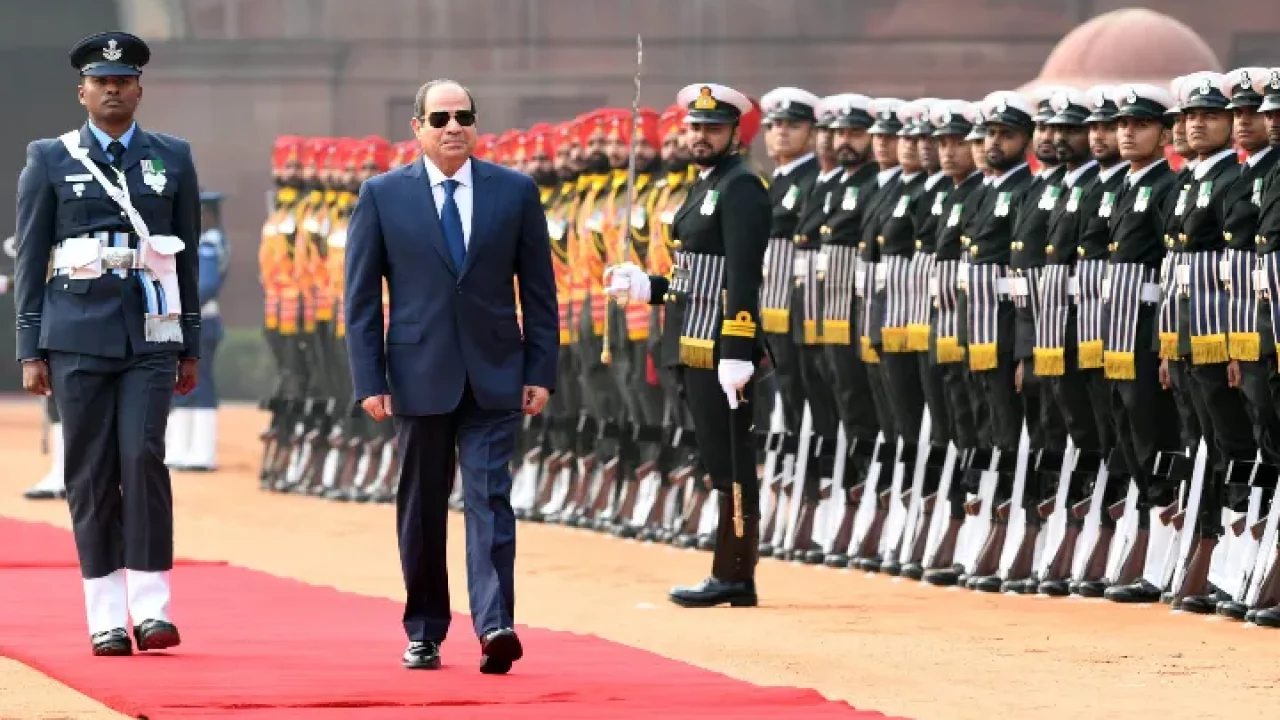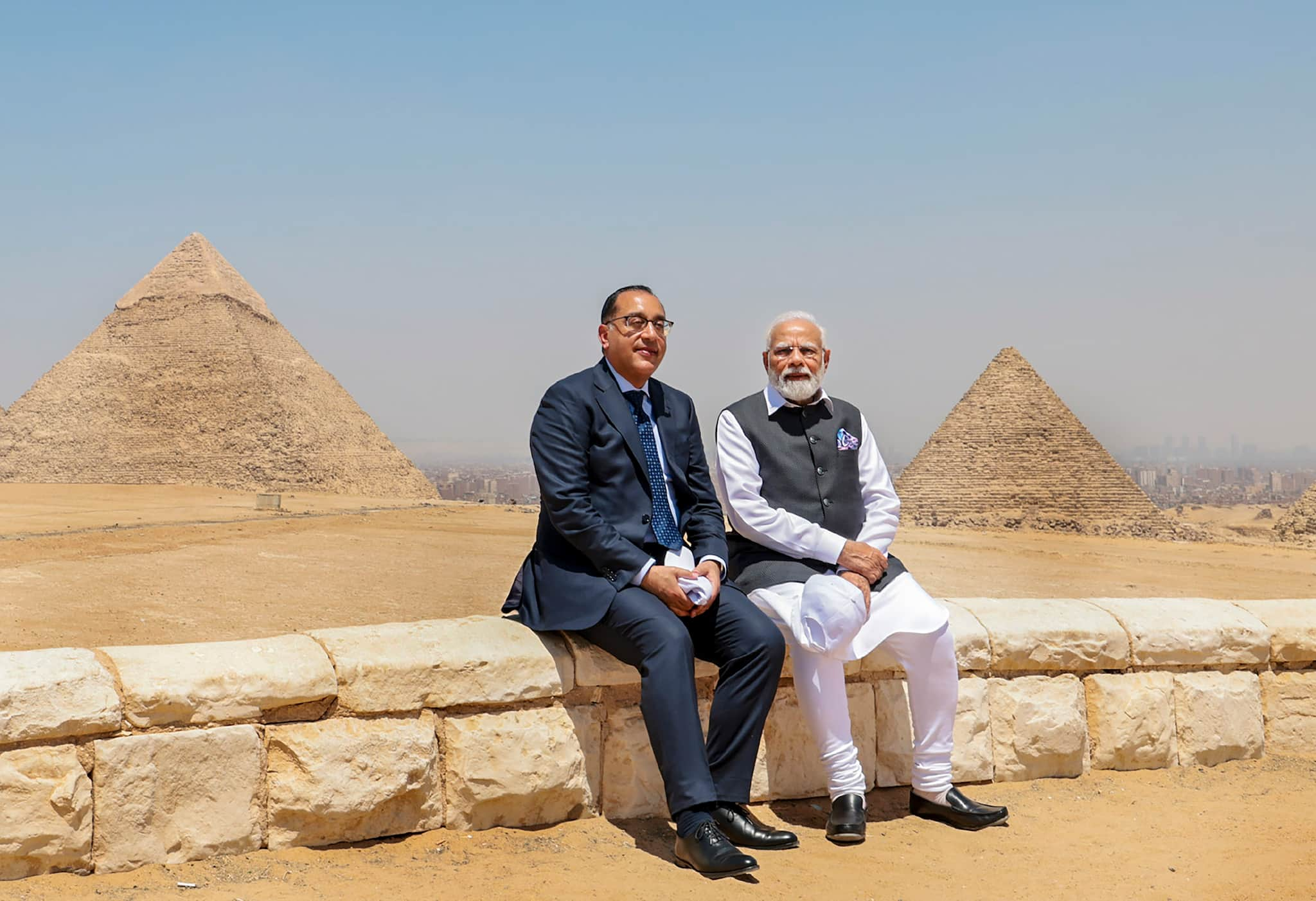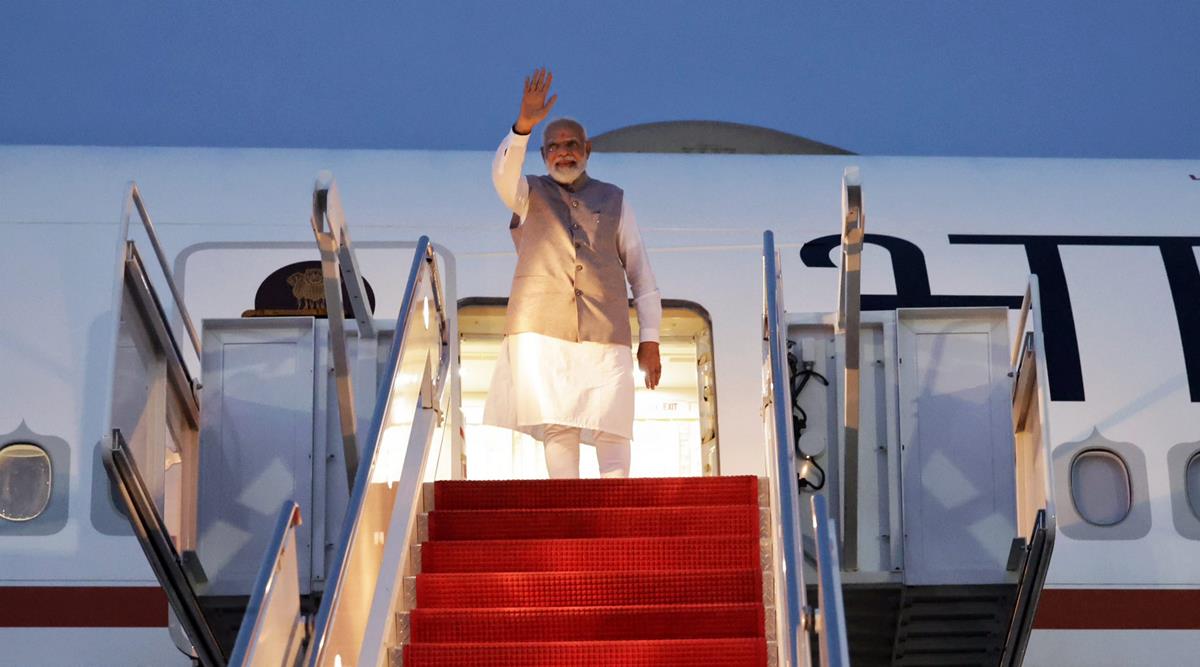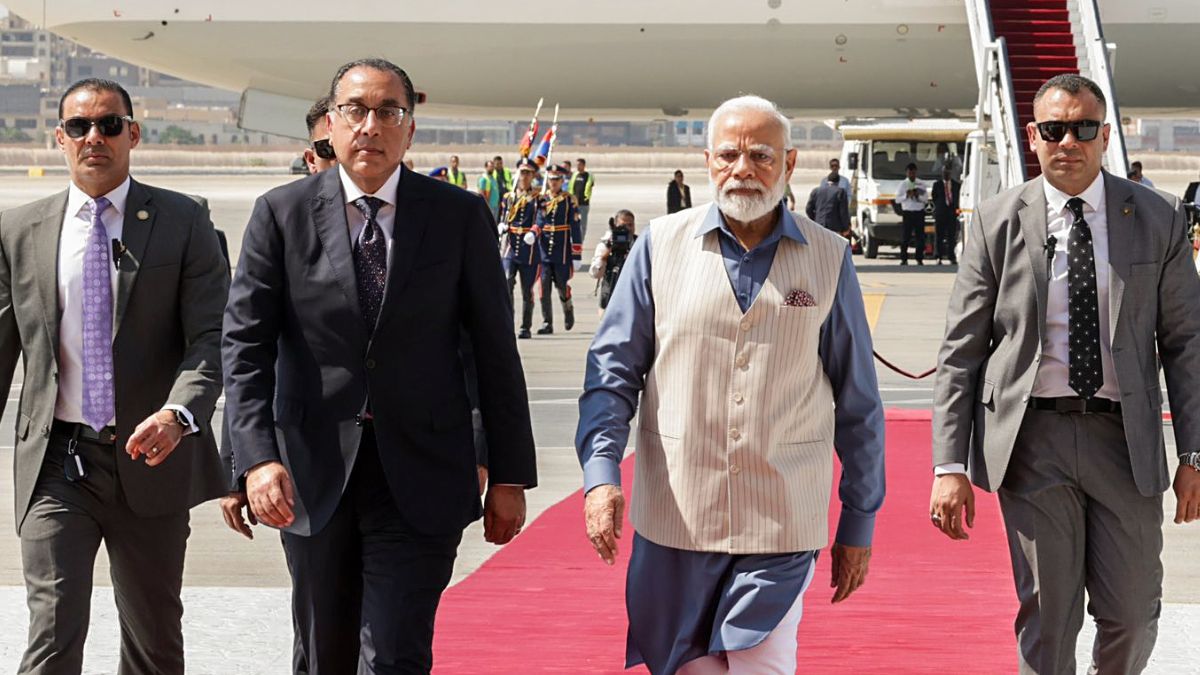India and Egypt’s Shared Vision for Development: What You Need to Know

India and Egypt’s Shared Vision for Development: What You Need to Know
This binding agreement strengthens the relationship between Egypt and India and provides the path for more collaboration and mutual gain in several fields.
India and Egypt, two nations with rich histories and diverse cultures, have recently embarked on a journey of cooperation and mutual growth, forging a robust strategic partnership that holds immense promise for the future. As geopolitical dynamics continue to evolve, both countries recognize the significance of joining forces to address common challenges and capitalize on opportunities across various sectors.

The presidents of Egypt and India signed a historic agreement on Sunday, June 25, 2023, raising their bilateral relations to the prestigious rank of a “Strategic Partnership.” This binding agreement strengthens the relationship between Egypt and India and provides the path for more collaboration and mutual gain in several fields.
India and Egypt have enjoyed long-standing historical ties dating back thousands of years. Cultural and trade links between the two civilizations can be traced back to ancient times. The historic exchanges of knowledge, ideas, and goods have laid a strong foundation for the modern-day partnership between the two nations.

One of the pillars of the India-Egypt strategic partnership is enhancing bilateral trade and investment. Both countries recognize the untapped potential in this area and are committed to expanding economic cooperation. As one of the fastest-growing economies in the world, India offers a vast market and a hub for technology and innovation. Conversely, Egypt serves as a gateway to Africa and the Middle East, offering strategic access to these markets.
The agreement marks the beginning of a new chapter in India and Egypt’s long-standing relationship, opening the way for several potentials for cooperation. Both nations are prepared to extend their engagement and embark on a journey of shared progress, prosperity, and security following the formalization of a Strategic Partnership between Prime Minister Narendra Modi and Egyptian President Abdel Fattah el-Sisi.

Efforts are underway to increase trade volumes, promote investments, and foster business collaborations. The creation of bilateral agreements and joint business councils has made it easier for businesses from both countries to work together and form partnerships. This has created a favourable environment for exploring new opportunities. Sectors such as information technology, renewable energy, pharmaceuticals, agriculture, and tourism hold immense potential for collaboration and investment.

Cultural diplomacy plays a crucial role in nurturing strong bonds between nations. India and Egypt recognize the power of cultural exchanges in fostering mutual understanding and people-to-people connections. Both countries aim to promote a deeper appreciation of their respective cultures and heritage through various initiatives, including cultural festivals, art exhibitions, and academic discussions.
Tourism is another avenue through which cultural ties are reinforced. India’s rich tapestry of historical sites and diverse landscapes, coupled with Egypt’s ancient wonders such as the Pyramids of Giza and the Nile River, make both countries attractive destinations for travellers. Enhancing tourism ties not only boosts economic growth but also fosters a greater understanding between the peoples of India and Egypt.
Recognizing the importance of security cooperation in an increasingly interconnected world, India and Egypt actively engage in strategic partnerships in defence and security matters. The focus areas are the exchange of intelligence, joint military exercises, and defence technology cooperation. Given the shared challenges of terrorism and extremism, both nations seek to enhance their counterterrorism capabilities through information sharing and capacity building.

India’s expertise in defence technology, particularly in aerospace, naval systems, and cybersecurity sectors, can complement Egypt’s defence requirements. Joint research and development projects, as well as defence equipment procurement, can further strengthen the defence ties between the two nations.
During their conversation, PM Modi and President Abdel Fattah el-Sisi focused on essential areas like trade and investment, information technology, defence and security, renewable energy, agriculture, health, culture, and inter-ethnic relations to deepen their strategic partnership. Both nations underlined their dedication to forging tighter cooperation and achieving concrete results while acknowledging the enormous potential in these fields.
Education and skill development form the bedrock of a nation’s progress. India and Egypt understand the significance of investing human capital to drive economic growth and innovation. Both countries have initiated programs to enhance education and skill development cooperation, including student exchanges, scholarships, and joint research projects.
India’s experience in information technology and software development, combined with Egypt’s growing technology sector, offers ample scope for collaboration in research and innovation. By promoting academic and research partnerships, both countries can leverage each other’s strengths and address common challenges in healthcare, agriculture, and renewable energy.
The strategic partnership between India and Egypt holds immense potential for a shared future based on mutual growth, cooperation, and understanding.
The leaders emphasized the need for coordinated action from the Global South to address the pressing global concerns of food and energy shortages and climate change. They reaffirmed their dedication to collaborating closely within the G-20 framework while concentrating on these crucial problems. The Prime Minister extended a welcome invitation to President Sisi, anxiously expecting his attendance and invaluable views on these essential global issues in recognition of India’s future hosting of the G20 Leaders Summit in September 2023.
To meet the rising need for sustainable and clean energy sources, the leaders further emphasized the significance of cooperation in renewable energy. Given Egypt’s advantageous geographic location and India’s experience in renewable energy technology, both countries saw opportunities for partnerships, research alliances, and information exchange. If we collaborate, we can decrease carbon emissions, attain energy security, and minimize the impact of climate change.

India and Egypt spoke about ways to improve agricultural cooperation, including exchange programmes, best practices sharing, and fostering agricultural research and development. This partnership will advance sustainable farming methods and increase food security while boosting agricultural output in both nations.
The leaders emphasized the need for more cultural exchanges, tourist marketing, and academic partnerships because they understood the value of culture and interpersonal relationships. The relationship between the peoples of Egypt and India will be strengthened through these activities, promoting more excellent knowledge and respect for one another’s cultures, customs, and values. The two countries hope to improve the futures of their citizens and further the development of the Global South by taking advantage of the opportunities provided by their strategic alliance.
The Strategic Partnership is supported by three crucial Memorandums of Understanding (MoUs) signed by the two countries after the two presidents’ discussions.
The first Memorandum of Understanding (MoU) in Agriculture seeks to increase food security, develop agricultural cooperation, and advance technological exchange. The two countries can use their farm experience and support crop diversification, sustainable farming methods, and efficient resource management by working together.
The second Memorandum of Understanding (MoU) emphasizes archaeology and antiquities, reflecting the deep historical links between Egypt and India. This contract represents a dedication to safeguarding and examining the two parties’ shared cultural legacy, encouraging research partnerships, and fostering cultural tourism.

The third MoU relates to competition law. India and Egypt want to build welcoming business environments that promote innovation, entrepreneurship, and consumer welfare by exchanging best practices, encouraging healthy competition and countering anti-competitive behaviour. This partnership will boost both nations’ economies, commercial relations, and ability to draw in outside capital.

By leveraging their historical ties, both nations are actively working towards strengthening economic, cultural, and security cooperation. Through enhanced bilateral trade, cultural exchanges, defence collaboration, and educational partnerships, India and Egypt are paving the way for a strong and prosperous alliance that benefits their citizens and contributes to regional stability. With their complementary strengths and shared vision, India and Egypt are well-positioned to make significant strides




